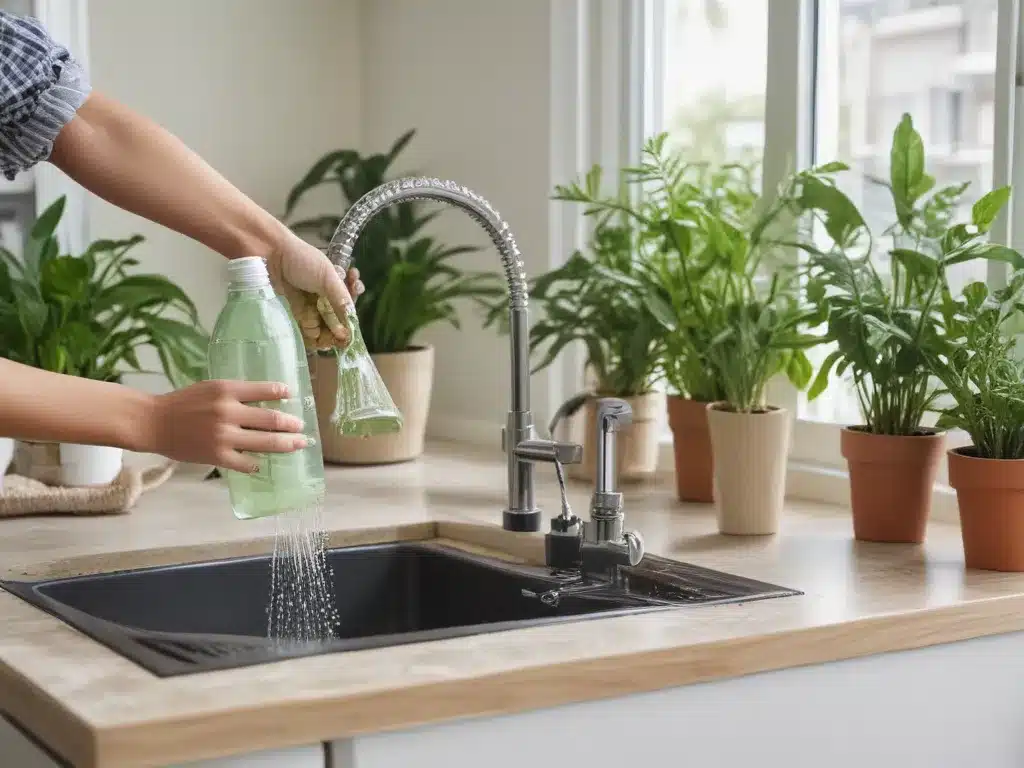Introduction
In today’s world, where chemicals and toxins seem to surround us, it’s essential to take steps towards a healthier and more environmentally-friendly lifestyle. One area that often gets overlooked is the cleaning products we use in our homes. Many conventional cleaners contain harsh chemicals that can harm our health and the environment. Fortunately, there is a solution – plant-based cleaners. In this article, I will dive deep into the world of natural cleaning, exploring the benefits of plant-based cleaners, their ingredients, and how to incorporate them into your cleaning routine.
The Dangers of Conventional Cleaners
Conventional cleaners – can contain harmful chemicals that can negatively impact our health and the environment. Some common ingredients found in these products include:
- Ammonia
- Chlorine
- Formaldehyde
- Phthalates
- Volatile Organic Compounds (VOCs)
These chemicals have been linked to various health issues, such as respiratory problems, skin irritation, and even cancer. Furthermore, they can contribute to indoor air pollution, which can exacerbate conditions like asthma and allergies.
In addition to the health risks, conventional cleaners can also harm the environment. Many of these products are not biodegradable, meaning they can accumulate in our waterways and soil, harming plant and animal life. The manufacturing and disposal processes associated with these cleaners can also contribute to greenhouse gas emissions and energy consumption.
The Benefits of Plant-Based Cleaners
Plant-based cleaners offer a safe and eco-friendly alternative to conventional cleaning products. These cleaners are made from natural, plant-derived ingredients that are gentle on our health and the environment. Here are some of the key benefits of using plant-based cleaners:
-
Health Benefits: Plant-based cleaners are free from harsh chemicals, making them safer for use around children and pets. They are less likely to cause respiratory issues, skin irritation, or other health problems associated with conventional cleaners.
-
Environmental Benefits: Plant-based cleaners are biodegradable and often come in recyclable or compostable packaging. They don’t contribute to indoor air pollution or harm aquatic life when disposed of properly.
-
Versatility: Many plant-based cleaners can be used for multiple purposes, such as cleaning floors, countertops, and even laundry. This versatility reduces the need for multiple cleaning products, which can save money and reduce waste.
-
Cost-Effectiveness: While some plant-based cleaners may be more expensive upfront, they are often more concentrated and can be diluted with water, making them more cost-effective in the long run.
Common Plant-Based Cleaning Ingredients
Plant-based cleaners are made from a variety of natural ingredients derived from plants, fruits, and vegetables. Here are some of the most common ingredients you’ll find in these products:
- Vinegar: A natural disinfectant and deodorizer, vinegar is effective in cutting through grease and grime.
- Baking Soda: A gentle abrasive and deodorizer, baking soda can be used for scrubbing and removing stains.
- Lemon Juice: A natural bleaching agent and degreaser, lemon juice can be used to clean and brighten surfaces.
- Essential Oils: Extracted from plants, essential oils like tea tree, lavender, and eucalyptus provide natural fragrance and antimicrobial properties.
- Castile Soap: A plant-based, biodegradable soap made from vegetable oils, castile soap can be used for cleaning various surfaces.
- Vegetable-Based Surfactants: Derived from plant sources like coconut or palm, these surfactants help to break down dirt and grease without harsh chemicals.
Making Your Own Plant-Based Cleaners
While there are many excellent plant-based cleaning products available on the market, you can also make your own cleaners at home using simple, natural ingredients. Not only is this cost-effective, but it also allows you to customize the scents and strengths to suit your preferences. Here are a few easy recipes to get you started:
All-Purpose Cleaner
- 1 cup white vinegar
- 1 cup water
- 10-15 drops of essential oil (optional)
Mix the ingredients in a spray bottle and use it to clean countertops, sinks, and other surfaces.
Glass Cleaner
- 1/4 cup white vinegar
- 1/2 cup water
- 1 tablespoon cornstarch
Combine the ingredients in a spray bottle and shake well before use. Spray onto glass surfaces and wipe clean with a microfiber cloth or newspaper.
Toilet Bowl Cleaner
- 1/2 cup baking soda
- 1/4 cup vinegar
Sprinkle the baking soda into the toilet bowl, then pour in the vinegar. Let the mixture fizz and sit for a few minutes before scrubbing with a toilet brush.
Incorporating Plant-Based Cleaners into Your Routine
Transitioning to plant-based cleaners may require some adjustments to your cleaning routine, but the benefits are well worth it. Here are some tips to help you incorporate these eco-friendly products into your home:
-
Read Labels Carefully: When purchasing plant-based cleaners, read the labels carefully to ensure they are truly natural and free from harsh chemicals.
-
Start Small: If you’re new to plant-based cleaners, start by switching out one or two products at a time. This will allow you to gradually adjust to the new cleaning methods and scents.
-
Experiment with DIY Recipes: Try making your own plant-based cleaners using the recipes above or explore other online resources for more options.
-
Adjust Your Techniques: Plant-based cleaners may require different techniques or dwell times than conventional cleaners. Be patient and adjust your methods as needed.
-
Involve Your Family: Educate your family members on the benefits of plant-based cleaners and encourage them to participate in the transition to a more eco-friendly cleaning routine.
Conclusion
Embracing plant-based cleaners is a simple yet powerful step towards creating a healthier and more sustainable home environment. By switching to natural, plant-derived cleaning products, you can reduce your exposure to harmful chemicals, minimize your environmental impact, and contribute to a greener future. Whether you choose to purchase ready-made plant-based cleaners or make your own, the benefits are numerous – from improved indoor air quality to peace of mind knowing you’re using safe and eco-friendly products. So, why not start your journey towards a cleaner, greener home today?







